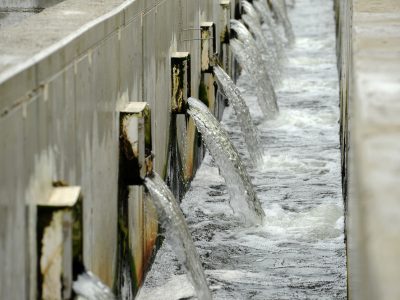Why Your Industrial Facility Should Plan for Water Shortages Sooner Rather Than Later
If you’re up to speed on water treatment industry news, you likely already know water shortages are increasingly the topic of conversation. According to the world water development report released by the United Nations in 2018,“more than 2 billion people lack access to safe drinking water and . . . with a rapidly growing global population, demand for water is expected to increase by nearly one-third by 2050.”
Lower-than-average rainfalls, higher temperatures, shrinking groundwater resources, receding lakes, and diminishing snowmelt are all cause for concern, especially for high-volume industrial water facilities and businesses. Industry- and population-heavy areas in water-stressed locations like California and India continue to struggle with divvying fair amounts of the valuable resource, and local regulators continue to increase water usage costs and impose tighter restrictions on wastewater discharge.
But even though certain areas of the world have yet to feel the pressure of a water shortage, it’s best to plan ahead and adapt your facility to conserve water sooner rather than later no matter where you are.
Here’s why:

Avoid process downtime during transitions
It’s increasingly likely that, with the way global water shortages are expanding, if your industrial facility uses high volumes of water from local waterways such as rivers and lakes, some type of water-use restriction will be implemented or, if it already exists, intensified. If your facility begins incorporating water-saving strategies now, your facility has a greater chance of being able to adapt to new production processes and technologies before a crisis hits versus trying to implement everything at the last minute, opening the door for process mishaps and downtime. If your facility has a multi-tiered plan in place, these water-saving goals can be completed in steps, therefor increasing the likelihood that by the time a shortage does happen, your process is already conserving and adapted.
Avoid sudden usage and discharge penalty fees
By switching to water-saving technology before these restrictions affect your facility beyond your means to comply, you can avoid being hit with usage and discharge penalty fees should the call for more restrictions be passed to you at a time you aren’t able to the make the changes. Usually these penalty fees are not passed on to companies for some time after they are made known to you, but if water shortages happen faster than expected, this could mean you might be held accountable for making changes more quickly, too. These fees can be particularly high, so it is always best to be ahead of the game.
Spread out adaptation costs over time
Water-saving technologies, such as zero liquid discharge, can be high initial investments that sometimes need to be planned and budgeted for in advance (although adapting your facility for water shortages can save your company money in the long run). Industrial facilities might want to spread out these water-saving changes—such as upgrading existing systems, changing out leaking pipes, and installing monitoring devices, etc.—over time to factor in the cost over an extended period rather than be forced to do it all together should a water shortage emerge in your local area. In this case, your facility might be stuck implementing all these changes at once which, depending on your budget, might not be feasible.
Can SAMCO help?
SAMCO has over 40 years’ experience custom-designing and manufacturing efficient water treatment systems for a range of industries and applications, so please feel free to reach out to us with your questions.
For more information or to get in touch, contact us here to set up a consultation with an engineer or request a quote. We can walk you through options for industrial water conservation solutions that fit your needs and maximize your return on investment.
Head on over to our blog to learn more about available water treatment technologies to help reduce industrial water consumption and prepare for water shortages. Some articles that might be of specific interest to you include:
